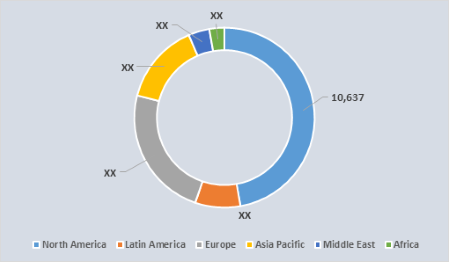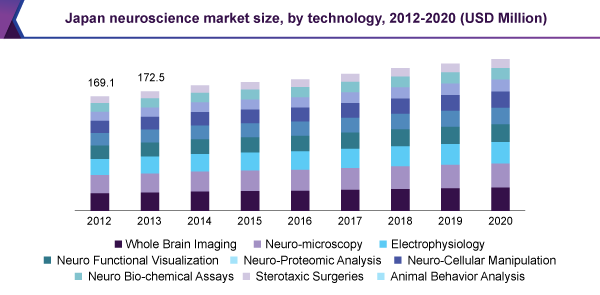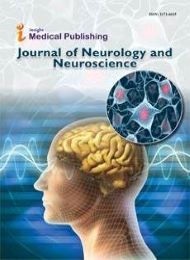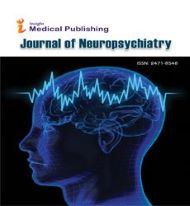Conference Series LLC Ltd welcomes all the experts in the fields of Neurology and Psychology to the 3rd International Congress on Neurology and Psychology on 22-23 October 2020 which will consist of Keynote speeches, Symposia, Exhibition, Speaker sessions, and Poster presentations.
Clinical Psychologists conference is based on the theme “Understanding the brain functions at a fundamental level.”
Why attend?
With so many people all around the globe trying to understand the brain functions and its psychology at a fundamental level and applying it to the Healthcare aspect, this is one of the great opportunities to gather and share the knowledge collectively through individuals from different universities, associations, medical centers, etc. The Neuroscience 2020 at Tokyo, Japan will communicate, coordinate, disperse information with recurring patterns and potential investigators and get name affirmation at this 2-day event. Broadly acclaimed keynote & plenary speakers, the most recent frameworks, methodologies, and the most current updates in the Neurology and Psychology fields are indications of this conference.
Neuroscience 2020 provides excellent opportunities to share views, knowledge, collaboration and networking.
Neuroscience 2020 aims to bring together Neurologists, Psychologists, Professors, Researchers, as well as students and all the people who are trying to understand the brain functions and psychology from around the world, providing them with a platform to discuss the various new and innovative. This year's conference will provide a foundation for networking with eminent personalities.
Target audience
Directors of Neurology & Psychology Associations
Psychiatry Scientists/Research Professors
Neurologists & Psychologists
Junior/Senior research fellows of Psychology Field / Nursing Science/ Health Care.
Psychology Students
Directors of Pharmaceutical companies
Clinical Pharmacists
1. Clinical Psychology
Clinical Psychology is something that deals with the assessment of human abnormal behavior and its treatments. The common method of treatment for this type of abnormal behavior is Talk therapy or Psychotherapy which was first developed by Psychoanalyst Sigmund Freud; he was the first one who focused that mental illness can be treated with talking to the patients.
2. Behavioral Genetics
Behavioral genetics tells how the genetic composition of a person, the environment they are exposed to affect the behavior of that person. The technological advancements of genetic engineering in 21st Century have made it possible to measure and modify the genome of a person which is the key to behavioral genetics and later the Eugenics movement.
3. Biological Psychology
Biological Psychology is the only branch that says that there is an underlying physiological cause for all our emotions, thoughts, and feelings. For example the release of oxytocin in females leads to bonding behavior and so on... As behavior is controlled by central nervous system, physicians are trying to understand how the brain works to different stimuli like sense, perception, and motivated behavior.
4. Educational Psychology
Educational Psychology deals with behavior of a person during learning process from a cognitive aspect. Educational psychology helps the teacher to understand the development of his pupils, the range and limits of their capacities of learning. Its works by incorporating other branches like Developmental Psychology, Behavioral Psychology and Cognitive Psychology.
5. Developmental Psychology
People go through so many physical and emotional changes over the course of their lives, while these changes are normal; developmental Psychology mainly focuses on studying these emotional, behavioral changes over their lifetime. These studies help in detecting abnormal changes and help to treat some of problems like depression, low self-esteem and others.
6. Applied Behavior Analysis
Applied Behavior Analysis is a type of treatment process which focuses mainly on improving specific behavior process. Unlike most of the therapies where they try to explain why and how the person behaves like they do, Applied Behavior analysis tries to replace bad with good; it uses positive reinforcement to bring that change. This method of therapy is mainly applied for autism patients.
7. Experimental Psychology
Experimental Psychology involves the fact based aspects. It establishes the relationship between the activities of the brain and our behavior. Most of the experiments conducted in this area are done in Laboratory under controlled conditions. It also deals with hypothetical questions.
8. Psychological Testing and Measurement
Experimental psychology explores basic concepts, such as memory and motivation, in many areas, such as child, social and educational psychology. Almost all Experimental psychology work is conducted in controlled environments, such as university research labs. While every branch of psychology strives to understand human behavior and thought, experimental psychology solely focuses on controlled experiments with designated variables, test subjects and statistical results.
9. Psychological Disorders
Mental disorders (or Psychological Disorders) are conditions that affect your thinking, feeling, mood, and behavior. They may be occasional or long-lasting (chronic). They can affect your ability to relate to others and function each day. The causes of mental disorders are often unclear. Theories may incorporate findings from a range of fields. Mental disorders are usually defined by a combination of how a person behaves, feels, perceives, or thinks.
10. Social Psychology
Social psychology is a discipline that uses scientific methods "to understand and explain how the thoughts, feelings, and behavior of individuals are influenced by the actual, imagined, or implied presence of other human beings. Social psychology is all about understanding how each person's individual behavior is influenced by the social environment in which that behavior takes place.
11. Neurology
Neurology is the branch of medicine that deals with disorders of the nervous system, which include the brain, blood vessels, muscles and nerves. The main areas of neurology are: the autonomic, central and peripheral nervous systems. Illnesses, disorders, and injuries that involve the nervous system often require a neurologist’s management and treatment.
12. Neurogenetics
Neurogenetics studies the role of genetics in the development and function of the nervous system. The field of neurogenetics emerged from advances made in molecular biology, genetics and a desire to understand the link between genes, behavior, the brain, and neurological disorders and diseases.
13. Neurobiology
Neurobiology is the branch of biology that deals with nervous system functions and structures. More specifically, neurobiology focuses on the cells and tissues of the nervous system and ways in which they can form structures and circuits (pathways) for controlling the body.This system includes common structures, such as the brain and spinal cord, and nerves. Neurobiology can be classified as a sub-discipline within the broader field of physiology.
14. Neurosurgery
Neurosurgery is a specialization that treats diseases and disorders of the brain and spinal cord. Back pain can sometimes produce neurological symptoms such as numbness, muscle weakness, due to improper coordination of nerves. These symptoms are indicators that neurosurgery is required to treat the conditions which cannot be treated by normal methods. Neurosurgery include discectomy, laminectomy, and spinal fusion surgery. Often there is a higher risk of nerve damage and infection which may result in paralysis.
15. Neurological Disorders
Neurological disorders are diseases of the central and peripheral nervous system. In other words, the brain, spinal cord, cranial nerves, peripheral nerves, nerve roots, autonomic nervous system, neuromuscular junction, and muscles. These disorders include epilepsy, Alzheimer disease and other dementias, cerebrovascular diseases including stroke, migraine and other headache disorders, multiple sclerosis, Parkinson's disease, neuroinfections, brain tumours, traumatic disorders of the nervous system due to head trauma, and other neurological disorders as a result of malnutrition.
16. Clinical Neuroscience
Clinical Neuroscience is a branch where it studies all mechanisms and changes during a brain or nervous system disorder, and it tries to develop new methods of treatment approach for these disorders, this branch of neuroscience is of more research oriented and experimental.
17. Cognitive Neuroscience
Cognitive neuroscience is the study of how the brain influences the mind. Cognitive science uses the experimental methods of cognitive psychology and artificial intelligence to create and test models of higher-level cognition such as thought and language. Cognitive Neuroscience acts as a bridge between brain and method.
25th World Congress on Neurology & Neuroscience was organized during June 18-19, 2018 at Dublin, Ireland With the support and contribution of the Organizing Committee Members, we successfully hosted the event at the conference venue.
Firstly we must thank you for trusting us and participating at Neuroscience Congress 2018, a global platform to discuss various important aspects of Neurology and Neuroscience.
There are infinite reasons to extend our gratitude to you for making the Neuroscience Congress 2018 outstanding conference. We couldn't have done it without your continuous support and believe towards our organization, which mutually made to achieve Neuroscience Congress 2018 new height in the field of Neurology and Neuroscience.
The conference was marked by the attendance of young and brilliant researchers, business delegates and talented student communities representing more than 30 countries, who have driven this event into the path of success.
The conference was organized around the theme “Novel Therapies in Neurosciences and Neurological Disorders”. The event implanted a firm relation of upcoming strategies in the field of Neurology with the scientific community. The conceptual and applicable knowledge shared, will also foster organizational collaborations to nurture scientific accelerations. Hilary McDonagh , Sligo College of Further Education, Ireland was the moderator of Neuroscience Congress 2018. We are much thankful to Randall E. Merchant for his great support and help.
The conference proceedings were carried out through various Scientific-sessions and plenary lectures, of which the following Speakers were highlighted as Keynote speakers Patricia A. Quigley, Nurse Consultant LLC, USA; Char-Nie Chen, Chinese University of Hong Kong, Hong Kong; Natallia Halinouskaya, Gomel State Medical University, Belarus; Gabriele Saretzki, University of Newcastle upon Tyne, UK; Hebah Hefzy, Henry Ford Hospital, USA; Kiti Muller, Nokia Bell Labs Research, Finland; Kelly Flowers, University of Florida, USA; Anna Lou Olivier, São Paulo University, Brazil, Randall E. Merchant, The Virginia Neuroscience Initiative, USA; Rina Aharoni, The Weizmann Institute of Science, Israel, Hilary McDonagh, Sligo College of Further Education, Ireland. The conference witnessed an amalgamation of peerless speakers, Keynote speakers, well-known researchers and delegates who enlightened the crowd with their enviable research knowledge and on various alluring topics related to the field of Neurology through their fabulous presentations at the podium of Neuroscience Congress 2018.
Conference series LLC offers its heartfelt appreciation to all the Organizing Committee Members, Chairs and Co-chairs, Speakers, Students, Media Partners and Editorial Board Members of Journal of Neurology & Neurophysiology, International Journal of Neuro-rehabilitation and Journal of Neurological Disorders who supported the conference in every aspect for the awe-inspiring exhibition at the venue.
We are also obliged to various delegate experts, company representatives and other eminent personalities who supported the conference by facilitating active discussion forums. So as continuation of Neuroscience Congress 2018, we would like to heartily invite you to our upcoming 3rd International Congress on Neurology & Psychology scheduled October 22-23, 2020 We look forward to seeing your benign presence with active contribution and support to make this event successful once more.
Neuroscience is a branch of science that involves various methods to measure and image the brain activity. Neuroscience is a subject focusing on molecular, cellular, developmental, structural, functional, and medical aspects of the nervous system. The constant evolution of neuroscience research is due to the advancements in other branches like medicine, Pharmacy, biology, biomedical Engineering.
Neuroscience largely relies on various devices to collect information regarding the brain like pathophysiology of different neurological disorders as such Alzheimer’s, dementia, stroke, migraine, Parkinson’s diseases, brain tumors and other traumatic disorders of nervous system.
These devices consist of different instruments that are required for neuroscience-based experiments. Various types of electrophysiology instruments and imaging instruments are utilized to map the brain and examine the brain activity.
The global neuroscience market size was valued at US$ 26,593 million in 2017, and is expected to witness a compound annual growth rate of 3.9% over the a period of 2018 – 2026. The major reason for this steady growth is the increase in the prevalence of neurological disorders resulting in the high demand for medical diagnostics, understanding of pathophysiology for better treatment which in turn boost the demand for neuroscience devices.
According to World Health Organization (WHO) 2016 report, nearly 6 million people die due to stroke every year and around 80% of these deaths occur in low and middle income countries. Moreover, over 50 million people suffer from epilepsy and 47.5 million people from dementia, with 7.7 million new cases, annually worldwide.
Global Neuroscience Market value by Region in 2017

Region wise insights
North America
It has the largest share in 2016 as regional market. The major factors that are attributed to this large share are presence of adequate number of neuroscience-based research facilities, which are being funded by government & other organizations, and availability of well-developed healthcare systems along with the increases prevalence of Neurological disorders in this region. North America’s market is also influenced by the presence of several organizations, universities, and institutes that are engaged in undertaking various initiatives to accelerate R&D in neuroscience space in the U.S., as well as in Canada.
Asia Pacific
With chain and Japan being on the top, Asia Pacific is the fastest growing regional market due to the constantly improving healthcare system and presence of significant target population in the region. Moreover, expansion of brain-related research focused facilities that are located.
In August 2017, a new facility called “HUST-Suzhou Institute for Brainsmatics” was opened in Suzhou, China. It is a brain-imaging factory that holds 50 automated machines for brain mapping unlike other laboratories that hold one or two brain-imaging systems. Such expansions in the Asian countries are certainly expected to foster the growth of this regional market at a noteworthy pace throughout the forecast period.





